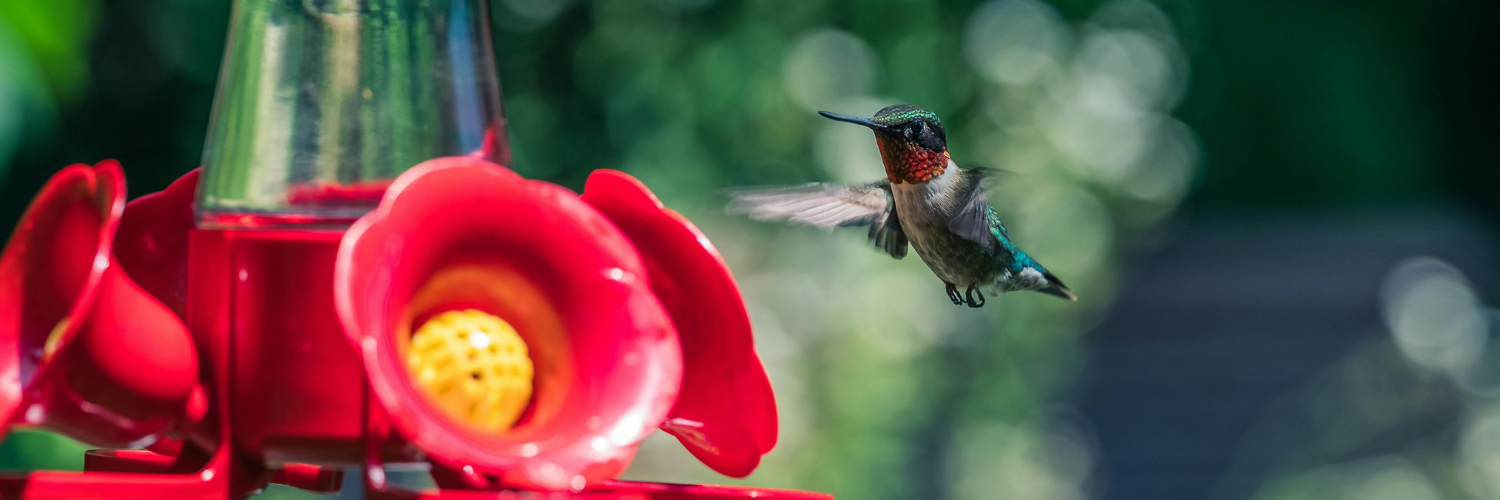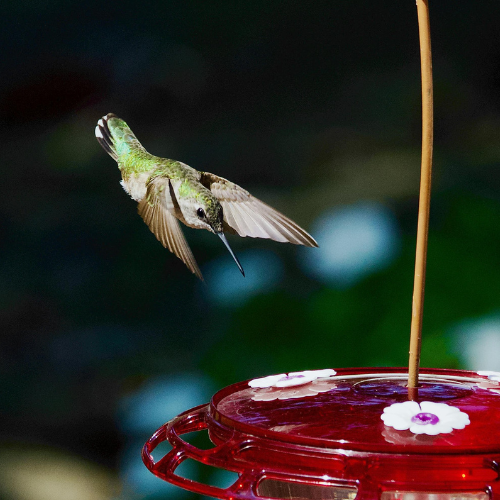Hummingbirds are fascinating, vibrant creatures that many of us love to attract to our gardens with feeders filled with sweet nectar. However, maintaining a clean feeder is crucial for their health and well-being.

Prevent Mold and Bacteria
- Mold Growth: Nectar is a sugar-water mixture that can quickly become a breeding ground for mold if left uncleaned. Mold can cause respiratory issues and other health problems for hummingbirds.
- Bacterial Infections: Dirty feeders can harbor bacteria that can infect hummingbirds, leading to severe illness or even death.
Ensure Fresh Nectar
- Prevent Fermentation: Nectar can ferment, especially in warm weather. Fermented nectar is harmful and unappealing to hummingbirds.
- Attract Birds: Clean feeders with fresh nectar are more attractive to hummingbirds, ensuring they keep coming back.
Tips for Cleaning Your Feeder

- Frequency: Clean your feeder at least once a week. In hot weather, clean it every 2-3 days.
- Proper Cleaning: Use hot water and a mild detergent to scrub all parts of the feeder. Rinse thoroughly.
- Avoid Chemicals: Do not use bleach or harsh chemicals. If necessary, use a vinegar solution (one part vinegar to four parts water) for a deeper clean.
- Inspect for Damage: Regularly check for cracks or damage that can harbor mold and bacteria. Replace damaged feeders promptly.
Conclusion
Keeping your hummingbird feeder clean ensures a safe and healthy environment for these beautiful birds. Regular cleaning prevents mold and bacteria growth, keeps the nectar fresh, and makes your feeder an inviting place for hummingbirds to visit. Your efforts will be rewarded with the joy of watching these amazing birds thrive in your garden.
